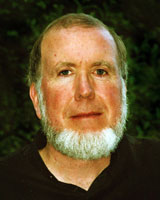
I have been assisting some people to connect online, and to participate in online groups. blog. This is a post for people who are computer shy. “Not technical”. Hate computers. Feel stupid around computers. Wish we were back with no email, and vinyl disks.
Perhaps one of the reasons kids can do this more easily than older people is that they play. If you want to paint you need to finger paint, mix colours, try texture, play with what you have. One pencil and some paper is enough.
I was older but got into computers through play on a ZX81 (my father’s gift to his grandson). Later when the phone got involved the main play was a game of connect. Like having two tin cans and string. 
Before you can use this medium in a creative way… play. Play till you know what ctrl a and ctrl b and ctrl c, v, x, z, n, u, can do! (Are there any more of those?)
Who reads manuals? Occasionally maybe, but mostly I play. I might try every item on the menu to see what it does. I look for a buddy who likes to play and send tests, I fire a question into Google rather than look at a manual, then there is a chance of some serendipity, a conversation.
One step leads to the next, but too often people want to miss the play step, and go straight to the work step. Then it becomes painful.
Even if you are scared of it… hate it, you can play. Think of a child hiding behind their mother’s skirts when there is something scary… they still peep out, they look. Then they might take a step. And children play together.
A computer course might help… but it is often that something will work when you are taught on another computer & then at home you can download the right software. Pain! Passwords don’t work! Pain. How much of that sort of pain do you need before you quit?
It is all about levels. Like levels in a computer game. Level 1. Switch it on. Level 2. Get connected. Level 3, do something you want to do. Those levels might involve quite a bit of play! Phone call play. Finding a buddy play. Trial & error play. Playing with the crap that comes up on a new laptop. Deleting it. Where are things stored? Installing Google Desktop so you can find things, setting up the virus checker. If all that stuff is tedious… boring scary… how can you play? If it is a series of levels to get through… maybe it is fun.
It is fun for me, and for many people I know, and almost the opposite for others. Is it a gene?
I had the extra incentive that there was a spell checker on my Commodore64, it liberated me from dyslexia. That was a strong incentive to play. Another thing is that I find the net, the cyberworld, where ideas live, alluring. Before the net I was a reader, and I am still. A hyper-reader, I learn about the next book from the one I am currently reading, links. Always hungry for the next book. A craving to be on the edge of the known & the unknown.
Here is one idea… don’t try to achieve anything at all. Look at this thing in front of you; not this post, not your computer, but this window into worlds unchartered. What is alluring? Nothing… Ok, try again, don’t pay attention to the fears, the doubts the, critique… focus on what is alluring… can you hear the call at all?
P.S. the image above was the result of five minutes play in ArtRage 2. I am called to that!




